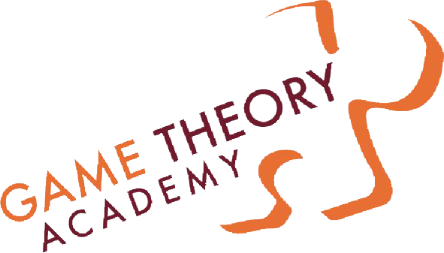 By Andrew Goldstein, GTA Instructor
By Andrew Goldstein, GTA Instructor
It has been said that “the voyage of discovery is not in seeking new landscapes but in having new eyes.” While Game Theory Academy exposes young adults to new concepts in the worlds of economics and finance, perhaps its greatest strength is providing students with the toolbox (“new eyes”) with which to revisit concepts they already know about and update their understanding with a bit more nuance.
It is in this spirit that we spent a whole hour this summer talking about taxes, something that everyone in the room had heard of before. I started by giving each table group a hypothetical salary, explaining the concept of marginal tax rates, and then leaving each group to calculate the amount in taxes that they would owe to the state of California and the Federal government. Some groups were surprised by how the tax brackets were structured, and even more surprised to learn that those numbers shifted around somewhat frequently via politics.
Income tax is the narrowest definition of taxes that individuals pay, but it is the one that the students were most familiar with and so that’s why we started there. We then went on to brainstorm other ways in which the students could be taxed – either directly or indirectly. A subset of the that list included: Sales Tax, Social Security and Medicare Taxes, Property Tax, Alcohol/Tobacco Tax, Airline/Hotel Tax, Highway Tolls, and Street Parking.
The students then had a fascinating conversation about how some of these taxes were actually positive incentives. “It’s as if the government is telling you not to smoke so much” via tobacco taxes and “forcing you to save money for retirement” via Social Security taxes. As a side note, we came full circle on the last day of class when a large number of students independently suggested that taxes would be a good way to solve some types of negative externalities.
This naturally led into the discussion of how public transportation fares can sometimes be subsidized – or “the opposite of taxed” as one student referred to it before I explained the term ‘subsidy’. There were also differing opinions on whether sales tax was fair and whether hotel taxes should really just be thought of as sales tax but at a higher rate.
Game Theory Academy is all about empowering students to use frameworks such as opportunity cost and trade-offs when making life decisions and encouraging them to act in their own best interest when making financial decisions. When viewed with the Game Theory Academy lens, taxes are especially interesting because they make your lifestyle a financial decision. Every element can be taxed to a certain degree: what it is you do for a living, where you live, how you get to work, and what you do in your spare time.
I really enjoyed working with this group of students this summer and am very excited to be a part of the Game Theory Academy family!
